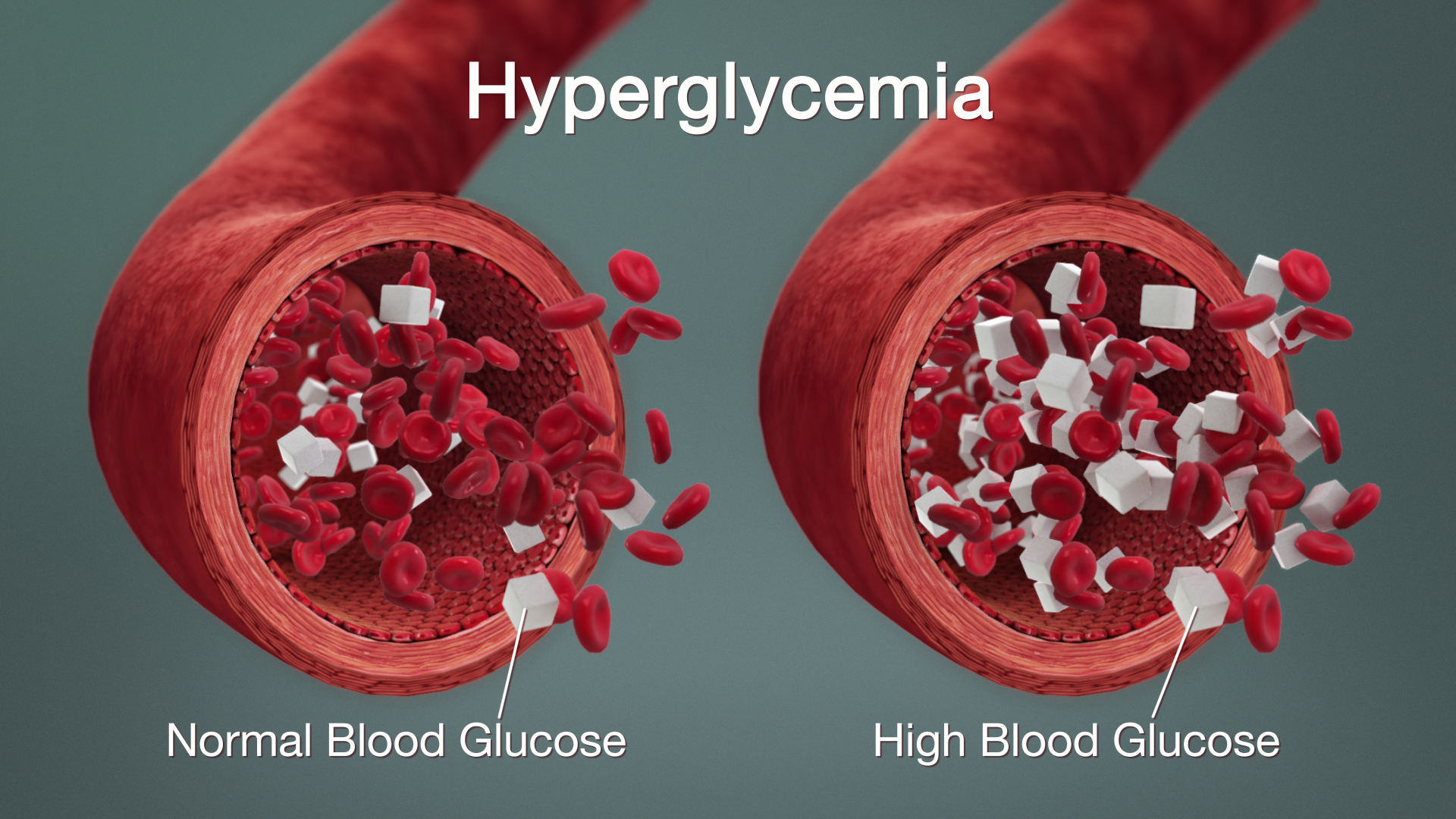Hyperglycemia is a term used to describe high levels of sugar or glucose in the blood. Hyperglycemia occurs when there is not enough insulin produced by the body to absorb the excess sugar into the blood. It is a leading indicator of diabetes. It is very important to treat hyperglycemia because if left untreated, it could lead to various complications.

Symptoms
The most common signs and symptoms of hyperglycemia are increased thirst, frequent urination, blood sugar levels higher than 180 mg/dl, fatigue, weight loss, blurred vision and headache. If hyperglycemia goes untreated then the symptoms can worsen as toxic acids build up in the blood and urine. These symptoms are abdominal pain, confusion, weakness, nausea and vomiting and even coma.
Causes
Hyperglycemia is caused when the body has problems producing enough insulin or it may be resistant to the effects of insulin. During digestion, glucose is released into the bloodstream, but it cannot enter the cells of most of the tissues without insulin. The insulin is secreted by the pancreas once it gets the signal from the blood about the increased levels of sugar in the blood. The insulin helps the cells to use the sugar in the blood to generate energy and for normal functioning. When the pancreas are not able to produce insulin or produce insulin which is less than sufficient, glucose tends to build up in the bloodstream which is called hyperglycemia. Hyperglycemia usually occurs in people who have diabetes. They commonly get this condition when:
- They do not use enough insulin or oral diabetes medication
- They do not follow the recommended diet for diabetic people
- They are physically inactive
- They are under stress
- They are suffering from an infection
Complications
Hyperglycemia is a serious condition and long term effects of this disease are:
- Nerve damage
- Cardiovascular disease
- Damage to the kidneys
- Damage to the blood vessels of the retina
- Problems in the feet caused due to poor blood flow that can cause serious skin infections and in some cases amputation
- Infection in the teeth and gums
- Diabetic ketoacidosis which can lead to coma and is life threatening
Treatment
Treatment for hyperglycemia is often a lifelong requirement especially in people with diabetes. The blood sugar levels have to be kept within the prescribed limits. Medication, exercise, diabetic friendly diet plan and monitoring the blood sugar levels constantly are an integral part of treatment of hyperglycemia. The food that is eaten must be in balance with the insulin working in the body. However, if hyperglycemia reaches dangerous levels then emergency treatment such as fluid replacement, electrolyte replacement and insulin therapy may have to be administered in some cases.
Disclaimer: The information in no way constitutes, or should be construed as medical advice. Nor is the above article an endorsement of any research findings discussed in the article an endorsement for any of the source publications.
Sources-
- https://www.mayoclinic.org/diseases-conditions/hyperglycemia/symptoms-causes/syc-20373631
- https://www.webmd.com/diabetes/guide/diabetes-hyperglycemia#2
- https://www.medicalnewstoday.com/articles/323699.php
Low blood sugar, also known as Hypoglycemia, occurs when the level of glucose in the blood drops below normal.
Read More..
When there is an imbalance between free radicals and the ability of the body to neutralize their harmful or toxic effects through production of antioxidants, it leads to oxidative stress.
Read More..











